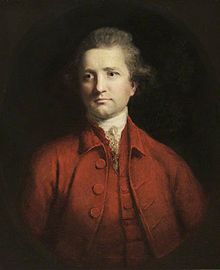ALEXANDER DOW
Alexander Dow (1735/6-1779) was a Scottish orientalist, an army officer in the East India Company and a writer and playwright. He was born in Crieff, Perthshire. He left Scotland as a sailor and was eventually employed by the East India Company in Calcutta, where he joined the Bengal infantry in 1760. He became a captain in 1764. During a leave in England in 1768 he published two translations, Tales translated from the Persian of Inatullah of Delhi and the History of Hindostan, translated from the Persian of Ferishta. He also wrote two plays, Zingis, a tragedy figuring Genghis Khan (1769), and, later, Sethona, set in ancient Egypt (1774).
The fragments:
The Tales translated from the Persian of Inatullah of Delhi, published in 1768, is a frame story in two volumes containing the story of prince Jehandar. In the Introduction the translator states that the work is a genuine and faithful translation, pertaining the ‘pompous diction’ of the original. It is taken from the writings of Brahmins and fell into his hands by coincidence. The stories are, according to him, ludicrous and show the mishaps resulting from the forced confinement of women. In the framing story Inatullah tells how he retired to the countryside with friends, where, inspired by sensual pleasures, he starts to recite the book ‘Gardens of knowledge’, or ‘Baar Danesh’. The author was the 17th century Persian officer and writer Inayat Allah Kanbu. The story begins in a traditional manner with an old king who has no successor, but after praying begets a son, who is a true hero. During a hunting excursion the prince and his friend Sadeti are attacked by a giant tiger. Jehandar defeats the tiger, but Sadeti is killed. Later Jehandar captures a parrot which appears to contain the soul of Sadeti, who begins to tell his adventures. This is the beginning of a chain of life stories by various protagonists, embedded in the frame of the prince listening to the parrot, in the presence of a concubine of the king, who wants to seduce the prince. In several respects the cycle resembles the concept, themes and motifs of the Thoudsand and one nights, such as the strategy of postponement through storytelling, love romances, exemplary stories, kingship, etc. Motifs are the falling in love through a portrait, the wiles of women, adultery, etc. Later a translation of the same work was made by Jonathan Scott (Bahar Danush, 1799), showing that Dow took some liberties in his translation. Ros Ballaster (Fabulous Orients) divides the stories into three groups: the frame story, and the stories by Gulzara and Jehandar; a number of stories told by courtiers to show Jehandar the inconsistency of women; and a number of tales told to Jehandar to dissuade him from love.

Sources/references:
Ros Ballaster, Fabulous Orients; fictions of the East in England 1662-1785, Oxford University Press, Oxford etc. 2005.
‘Dow, Alexander,’ in: Dictionary of national biography, Smith, Elder & Co., London 1885-1900
‘Dow, Alexander,’ in: Oxford dictionary of national biography (http://www.oup.com/oxforddnb)